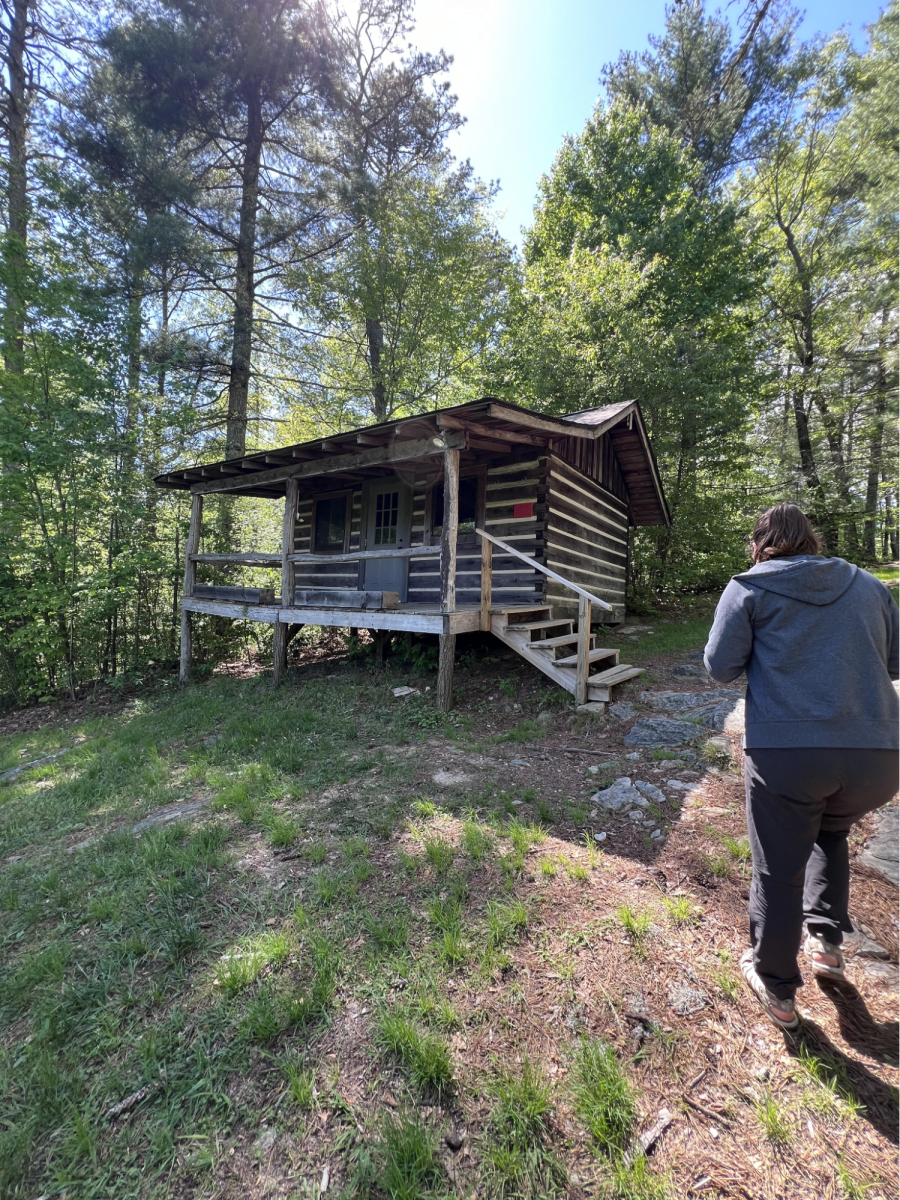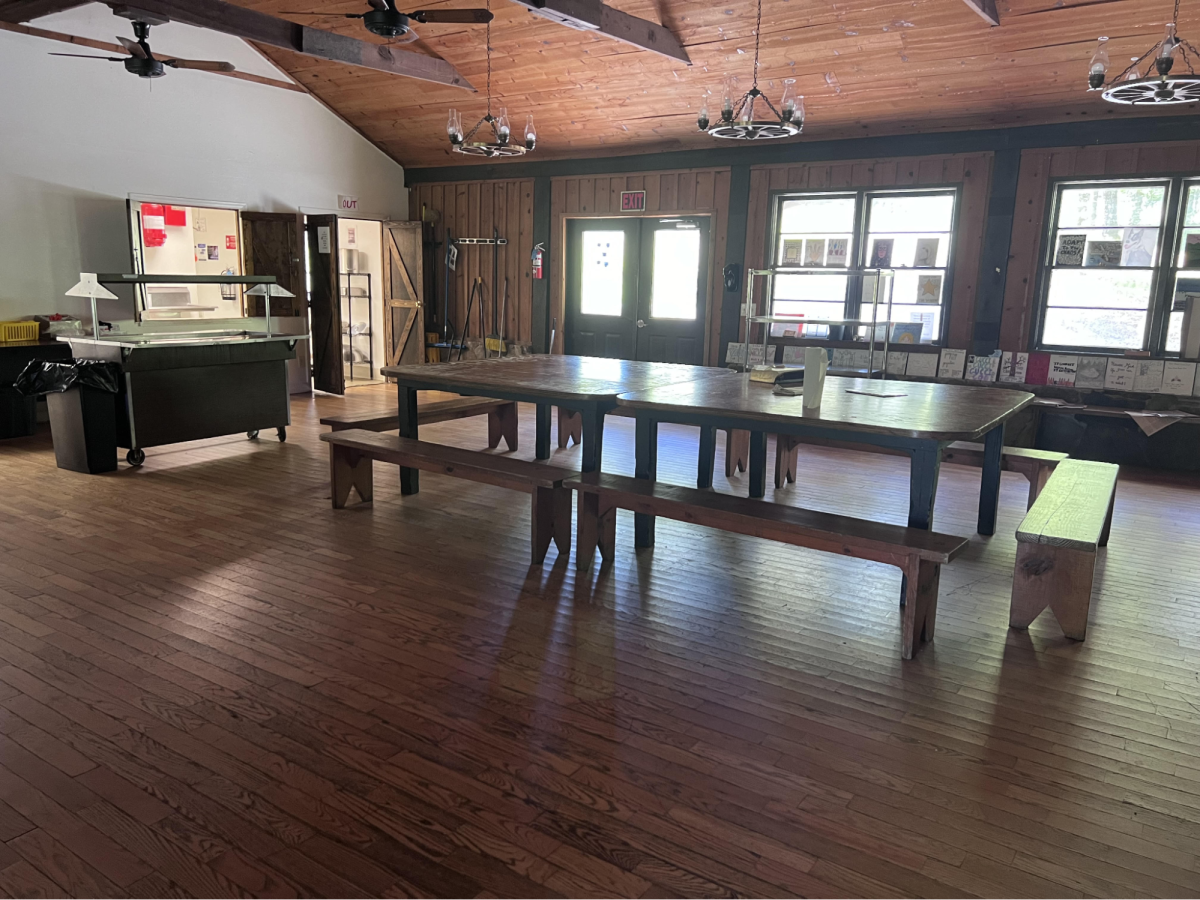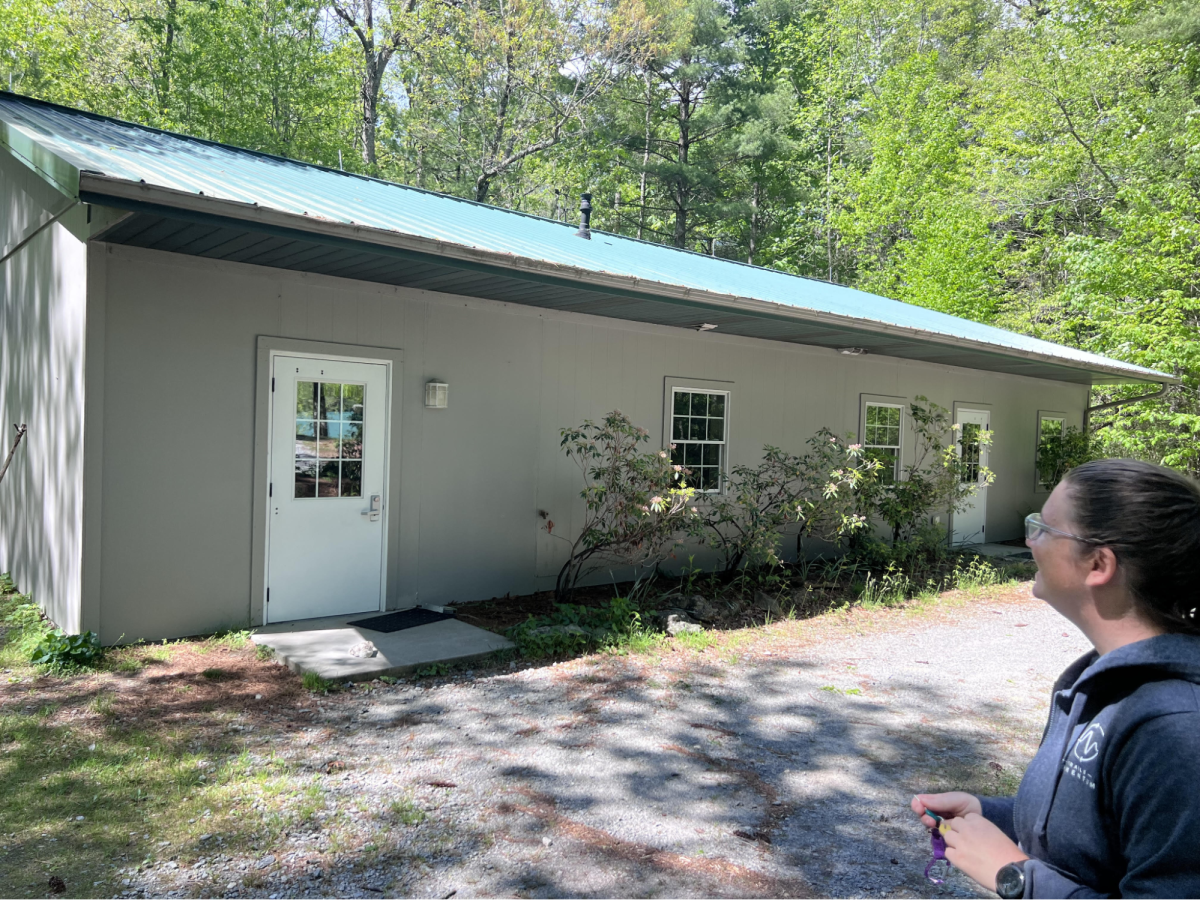Trails Momentum revamped its program from a near sole-focus on the outdoors to something completely new in the face of public concerns over the safety of the program and its declining attendance, according to two former students.
“Momentum has implemented significant programmatic changes tailored to meet its participants’ evolving needs. Recognizing the ongoing shifts in young adult mental health and comfort zones, Momentum has strategically reimagined its outdoor and community wellness offerings,” reads a Momentum newsletter published in April on All Kinds of Therapy.
The public concern over safety at Trails Momentum, a wilderness program for adults aged 18-25, relates to its close association with the youth wilderness program Trails Carolina, with its former campus located just one mile from Momentum, as well as sharing the same parent company, Family Help and Wellness.
“There was a decline in attendance, with a month and a half period with no new students,” following the closure of Trails Carolina, according to former student Neal Harmon, who attended Momentum during this tumultuous period.
The North Carolina Department of Health and Human Services (NCDHHS) temporarily shut down Trails Carolina in February following the death of a 12-year-old child on his first night at the wilderness therapy program. Following a half-year long court battle and further investigation by the NCDHHS, the department formally revoked the program’s license in May.
“Based upon our review, we conclude Trails Carolina, LLC has failed to comply with the provisions of North Carolina General Statute (N.C.G.S.) § 122C, Article 2, the licensing rules for mental health, developmental Disabilities and Substance Abuse Services and N.C.G.S. § 122C, Article 3, Client Rights for individuals with mental illness, developmental disabilities or substance abuse issues in the operation of Trails Carolina. Therefore, the Department of Health and Human Services hereby initiates revocation of your license,” said NCDHHS Medical Licensure Chief Robin Sulfridge in the May letter.
Neal Harmon and Sam Ehrlich both attended Momentum for more than three months in the past year and detailed the extensive changes the program is going through in each of their respective interviews.
Harmon attended Momentum during the shutdown of Trails Carolina in February, and said it deeply affected the program.
This was despite, as Harmon describes, a lack of association between the two programs.
“We only saw students from Trails Carolina maybe once a week, and they were across the lake from us. We weren’t supposed to interact with them, but we did,” Harmon said.
The NCDHHS did not mention Momentum a single time in its 88-page report regarding the violations of Trails Carolina, confirming Harmon’s observations. The programs are also subject to separate guidelines for adult and children wilderness programs, according to the NCDHHS Mental Health Licensure and Certification Section.
Trails Carolina was subject to NCDHHS Program Code 10 NCAC 27G .5200, “Residential Therapeutic (Habilitative) Camps for Children and Adolescents of All Disability Groups,” in “Wilderness Camp Settings,” with Momentum falling into a category with much looser licensure requirements.
Despite being in the clear in terms of its license, Harmon and Ehrlich report that Momentum has taken several drastic steps to change the direction of the program in an attempt to move away from wilderness.
Todd Randell, executive director of Trails Momentum, was contacted for an interview but declined, writing in an email, “I do not have the authority to engage in interviews with journalists without being directed to do so by my employer – Family Help & Wellness (FHW). Especially regarding a topic that refers to a tragedy at another FHW program.”
“The program did evolve, one of the biggest changes I saw was the shift towards more activities during our adventure weekends. This was a positive change, as it offered a broader range of experiences,” said former student Sam Ehrlich.
The attendance drop-off signaled the need for change to the leadership of trails, with the sources pointing to much less emphasis on wilderness, with several weeks in a row without any camping, something that was unheard of just a few months before.
“I think it’s more appealing to have a program that isn’t solely focused on wilderness camping, as it provides a middle ground for people who don’t want to be in a residential hospital but also don’t want to engage in complete wilderness backpacking. Adding activities like movies and outings to the public makes the program more engaging,” Ehrlich continued.
Ehrlich applauded Momentum for changes, giving several examples of new exposures that were well-received by nearly all students during his stay.
“I think they are already doing a really good job with the changes, such as incorporating Apple Watches and MP3 players and allowing more public outings. One additional suggestion I have is to allow more exposure to personal phones towards the end of the program. This way, the transition back to everyday life is less jarring, as it would ease the shift from wilderness to having unrestricted phone access.”
These changes combine with the program increasingly admitting students with less severe cases of depression and/or suicidal ideation, according to Harmon.
“When I first arrived, there were six students, two of whom were in a severe suicidal state. Over time, the program evolved. About two months in, I noticed that the program started focusing more on individuals who were less in immediate crisis and more on people who were dealing with anxiety and isolation. The program shifted towards including more participants who were relatable and had less severe cases,” Harmon reported.
Ehrlich and Harmon both assured all future attendees of Momentum that safety is a top priority, with staff handling even the most challenging circumstances very well.
“Safety is a top priority at Momentum. My experience was that the program takes safety very seriously, so I wouldn’t be overly concerned about it,” Ehrlich said.


![Brooke Pedersen [second from the right] and Luis Reyes [right] hold banners during the Wrap The Woods event.](https://thebluebanner.net/wp-content/uploads/2025/09/ELIZABETH_PRITCHITT_IMG_3470-1200x804.jpg)



















